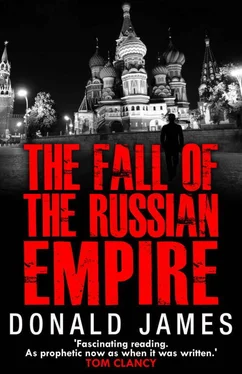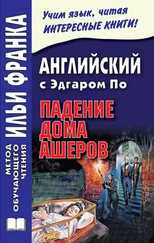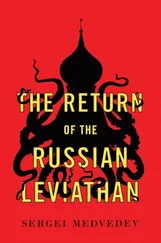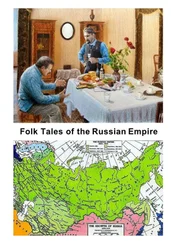“You must have been there, gentlemen,” Laryssa said amiably. “It couldn’t have been anywhere else.”
Naturally they admitted nothing, although when Laryssa said she had worked in the kitchens of the club (quite untrue) for over two years, they relaxed a little. But perhaps it was only when my blond Anton came back that they really became friendly.
And so that was how we got a lift, the three of us crammed in the back of their repaired Zhiguli-Fiat, all the way to Batumi on the coast a few miles along from Turkey. And how the two golden boys, Peter Rinsky and his friend, in that turbulent Georgian port where Russian troops were still fighting a rearguard action against the independence forces, shared with us the precious name of a boatman.
In Red Square the GUM department store, looted of its tawdry stock, was blazing. On the corner of 50th Anniversary of the Revolution Square, fire had gutted both the Intourist and the National Hotels. Along the northeast wall of the Kremlin, across the Alexandrovsky Gardens, the whole of the Prospekt Marksa seemed to be alight. Flames pouring from the huge Rossiya Hotel cast a leaden orange glow over the waters of the Moskva River.
The random shelling had taken a terrible toll of the refugees. Along every sidewalk in the center of the city dark crumpled figures lay in the snow. Some still moved. At the great Botkin Hospital, where Lenin himself had been treated for a gunshot wound, at the ancient Burdenko and the Filatov Children’s Hospital, surgeons operated throughout the day and long into the night.
* * *
Deep in the Lubyanka Letsukov had heard the shelling. Throughout the day no guard had visited his box cell. No one had slopped soup into the wooden bowl chained to the back of the door. No one had brought a chair and a table and a man to stand behind you when the questions were asked. His neck was swollen out below the skull. His ribs were punched and kicked to a dropsical blue-blackness. If he moved it was to feel the pain in every bone and muscle in his legs and body.
Yet he had told them nothing. From that fact alone he derived a sense of pride that no beating could erase. He knew with certainty that he could hold out against them.
They had used all their resources of terror. In the night men in hoods had flayed him with chains. At dawn he had been menaced with unspeakable suggestions. He held before him the example of Joseph Densky even while he recognized that he would never possess that man’s capacity to influence evil. Sometimes he sang through cracked lips. Sometimes he shouted cheerful abuse at the guards. He had learned that above all he must not fear provoking them. Above all he must not be respectful.
* * *
Where it began nobody could say. Perhaps before the smoking wreck of the GUM department store, perhaps on the Marx Prospekt or in the gardens of the shell-shattered Polytechnical Museum. Or perhaps in all these places at once. But while the Gulag Regiments slept or rested, while the men from the camps wrapped themselves in the cotton blankets of the shops along Kuybysheva Street, in some unspoken alliance of the dispossessed, the Iskra march on the Lubyanka began.
They carried flaring torches even though the buildings still burned around them. They assembled in small groups and joined with other groups. They came together in hundreds and joined with other hundreds. While the Gulag conquerors of the city looked on in bleary approbation they marched toward the Lubyanka.
In Dzerzhinsky Square they gathered in their thousands, the handheld torches umbring the faces of Joseph Densky’s Russia.
They faced the gray stone building which had once been the home of the All-Russia Insurance Company and through whose dark Victorian basements, since the Revolution, the prisoners of Dzerzhinsky, Yezhov, Beria, Andropov and Kuba had passed to the hutted camps of Soviet correction.
And now the servants of the system began to melt away. Through side entrances and alleys the secret policemen began to scuttle out. When the great crowd surged forward, those few caught in the courtyards of the prison were trampled underfoot.
Carole Yates found herself swept down one of the green-painted corridors. All around her men tore filing cabinets from the walls and emptied their contents through shattered windows. Thick wads of ribbon-tied records were seized by the crowd below and thrown onto blazing fires in exultant contravention of their red stamp: To Be Preserved Forever .
She fought her way through the mass of men at the entrance to the basement rooms as prisoners were handed up across the heads of the crowd, shaven, gray-clad figures, some still trailing chains.
Punching, scratching, fighting with her elbows, she followed him as he was passed across the heads of the crowded men. Only in the courtyard could she reach him, lead him to a corner, lower him down into the oil-stained snow and hold him in her arms.
In the courtyard of the most dreaded prison in the world she rocked him slowly in her arms. “You’re safe, darling,” she whispered. “The Kremlin’s burning. The people of Moscow have risen.”
She stroked his tom mouth and bruised cheeks. “I will never part from you again, Alexei,” she said, using the Russian form of his name for the first time. “Wherever we go, we go together.”
“And wherever we stay?” he forced the words through swollen lips.
“And wherever we stay,” she said turning, on her knees in the snow, her arm cradling his head, as the exultant crowds roared and chanted around them and the first flames illuminated the dark, dark passages of Stalin’s Lubyanka.
Like some foul cloud the smoke hung above the rooftops. In the dawn, flames and the energy of hate and fear had burned out. From every mound of rubble wisps of smoke rose and faltered. Exhausted men slept beside the dead as the snow fell in some soft pacification of the fury that had been visited upon Moscow.
Encircling the city eight regular Russian divisions, withdrawn from the Transylvania border, awaited the order of Natalya Roginova to advance.
In her speech to the great assemblage in the Oval Room at Archangelskoye, President of the Russian Republic Roginova referred, for the first time, to “the former Soviet Union.” While leaders of the one-time vassal states of the Russian Empire applauded, she revealed to the world the new political shape of one-sixth of the earth’s surface. The newly constituted Republic of Russia was to stretch, as it had for 200 years, from Leningrad to the Pacific Ocean. The new Republic actively rejected political, military or economic responsibility for any of the autonomous republics of the former Soviet Union. It proposed, however, the closest possible links with the Slav nations of the Ukraine and Belorussia. It specifically renounced any military interest in the states of Eastern Europe. The enormous military power of the Russian Republic was, however, available to provide military advice to those nations which requested it.
Then, to a stunned Western world, she announced the new Russian-Japanese State Treaty. In return for the vast resources of Japanese technology and capital, the Russian Republic was to supply energy, raw materials and military assistance in the most far-reaching program ever agreed between two nations on earth.
“What power on earth,” she asked, “can menace our Rodina , united in this new commonwealth of nations, our great resources linked to the capital and talent of our Japanese neighbor?”
* * *
At a simple ceremony on the eve of the first Christmas to be publicly celebrated in Russia since 1917, Natalya Roginova laid a wreath on the grave of Igor Alexandrovich Bukansky. Her efforts to trace Lydia Petrovna and Bukansky’s child had been unsuccessful. Rumor reported that they had fled to the West.
Читать дальше












